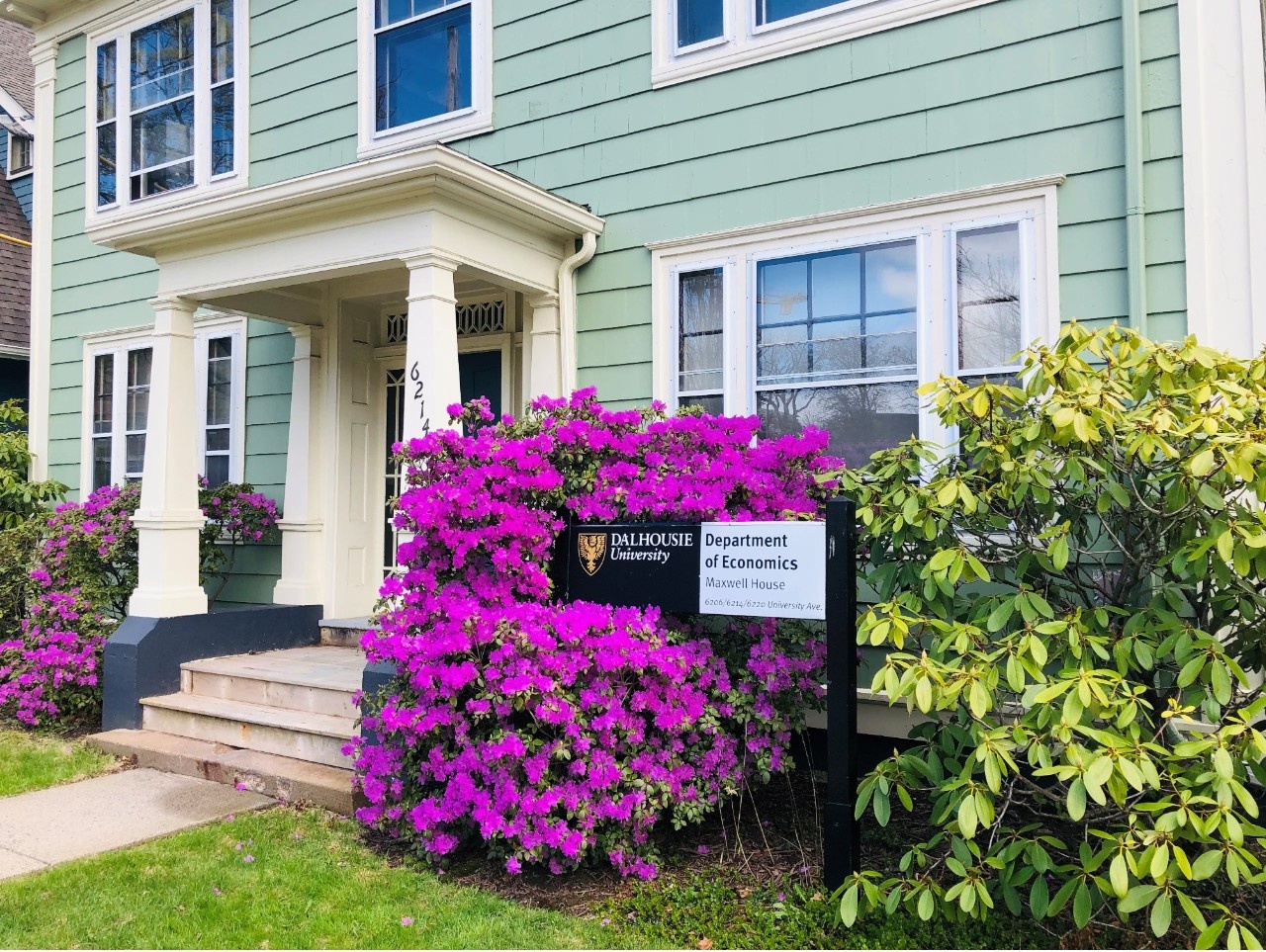News
» Go to news mainMeet Professor Zhou

My name is Weina Zhou. I am an Assistant Professor at the Department of Economics. I hold a PhD in Economics from the University of British Columbia. I began my work here at AVľăŔÖ˛ż in 2013. I enjoy my life in Halifax, but most importantly, I love my job!
My journey to become professor has not been an easy one however. Indeed, professorship was unimaginable for me when I was a teenager. I was born in Shanghai, China. For family reasons, at age 15, I relinquished the opportunity to study at a local elite high school and attended a vocational school instead. The course I enrolled in trained students to become receptionists or secretaries, with a focus on Japanese. After graduating from the vocational school, I worked as a receptionist for two years, accumulating enough funds to take me to Japan. My goal was very clear; I wanted to study in Japan, at a university. During the course of my first year there, I attended a Japanese language school in the morning, pored over Japanese high school textbooks in the afternoon, and worked at a noodle shop in the evening. I taught myself mathematics, physics, chemistry, and English so as to sit for the university entrance examinations in Japan. After a year of hard work, I was accepted at my dream university, the Tokyo Institute of Technology. I still remember the moment I saw my name on the list of accepted students and how my mother, meeting me at the airport, cried at seeing the amount of weight I had lost during that one year in Japan.
My major at the Tokyo Institute of Technology was in Social Engineering. Economics was only a small part of my major. Although my exposure to Economics at the undergraduate level was minimal, a book and a professor changed the course of my entire career path. The book was titled Freakonomics. I was fascinated by the empirical work discussed in this book and how data can uncover truths. My undergraduate supervisor, Professor Ryuichi Tanaka, showed me the tools: Econometrics. Now, I am teaching Econ3338 Introductory Econometrics at AVľăŔÖ˛ż. I feel so overjoyed to be teaching this course, and each year, I devote much effort to it. I truly believe this course to be one of the most useful for students no matter whether they choose industry or academics in the future.
One of my main research agenda foci is the Send-down movement (1968-1978) during the Chinese Cultural Revolution. The Send-down movement forced more than 16 million urban teenagers to move to rural areas to carry out hard agricultural field work. The experience was most difficult for the send-down youths. Many of them had never been in rural areas and had never before left their parents, yet here they were working as long as 12 hours a day, 7 days a week. My research finds interesting outcomes of resilience on the part of those youths. After the Cultural Revolution, when the send-downs returned to urban areas, they were more likely to upgrade their education; some of them came to earn higher incomes compared to those who were not sent to rural areas. This research work began while I was at UBC. One of my thesis committee members and my mentor, Professor Ashok Kotwal, said to me one day, “You are a sent-down girl.” I smiled.
Recent News
- University Medal in Economics, 2024
- 2023‑24 Economics Prizes
- 2023‑24 Economics Teaching Assistant Award
- Ruth Forsdyke receives Award for Excellence in Teaching 2023‑2024.
- 2023‑24 Award Recipients
- Maxwell Scholarship Award Recipients 2023 24
- Dr. Barry Lesser Honored in China
- U.L.G. Rao Memorial Prize in Economics
